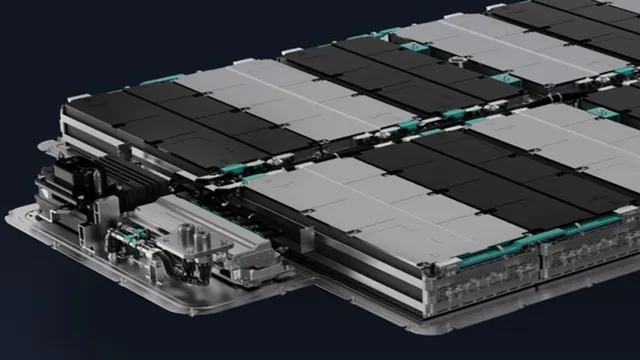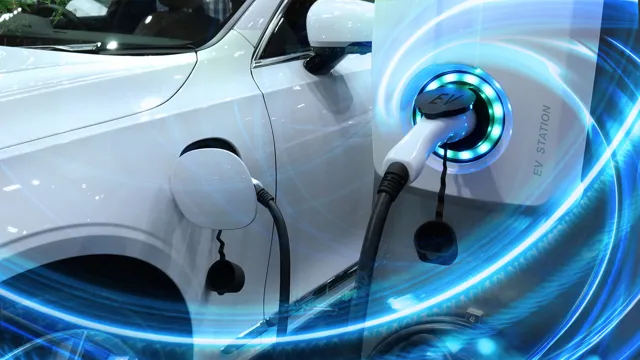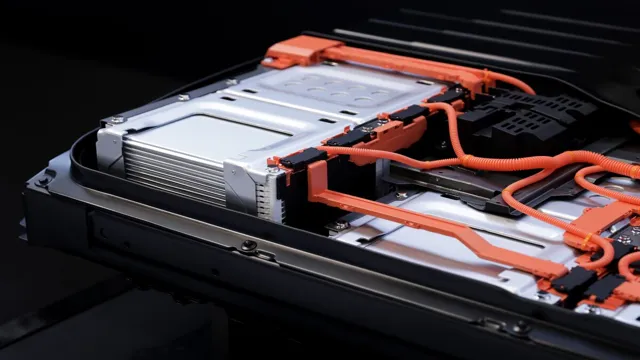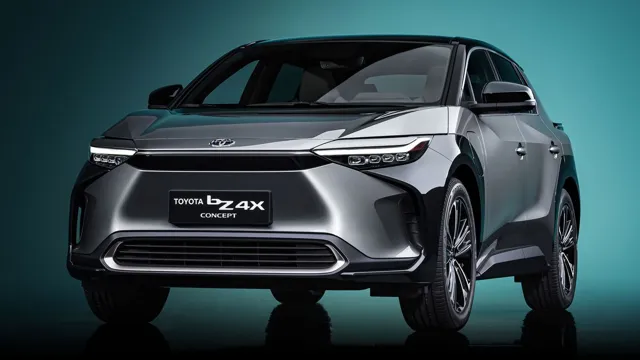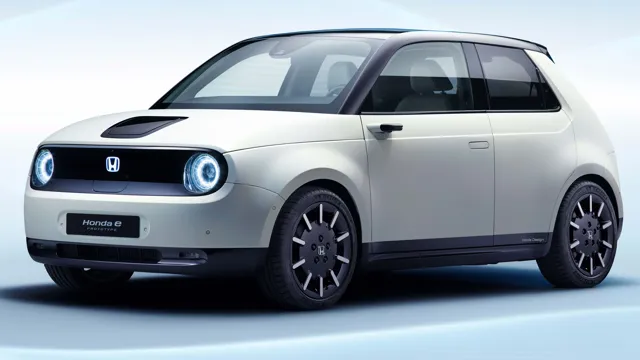Revolutionizing the Automotive Industry: Exploring the Advancements in Solid State Electric Car Battery Technology
The automobile industry has been an integral part of transportation for over a century. Cars have undergone significant progress in design, technology, and functionality, each step bringing new innovations and features. The latest movement in the automotive sector is revolutionizing cars.
The aim is to improve everything about cars, from performance and safety to emissions and design. Revolutionizing cars entails utilizing state-of-the-art technology such as self-driving cars, smart connectivity, artificial intelligence, and renewable energy sources, to mention a few. The internet has sped up the process of enacting groundbreaking changes by making information readily available and sharing ideas globally.
This has led to the growth of smart cars, which do more than just move from one place to another and offer a host of added benefits. By revolutionizing the automobile industry, cars can be transformed from being steel boxes with four wheels to mobile workspaces, entertainment centers, and even a space for rest. With these innovations, the environmental impact of cars is greatly reduced, making them more sustainable and eco-friendly.
The desire to revolutionize cars is not only about implementing technology but also improving comfort, safety, and overall driving experience. The industry is also taking design aesthetics seriously, with more focus on sleek design and creative forms. In conclusion, the revolutionizing of cars is an exciting development in the automotive industry, promising to maximize car functionality while reducing their environmental impact and improving driving conditions.
It is a radical shift from the traditional concept of cars, and if implemented effectively, it will change how we interact with cars forever.
Solid State Technology
Solid state electric car battery technology is one of the most exciting developments in the automotive industry. It is an innovation that brings remarkable improvements to the overall performance of electric vehicles. Unlike traditional lithium-ion batteries, solid-state batteries use a solid electrolyte instead of liquid, which provides higher energy density, faster charging times, and longer lifespans.
The technology’s potential to maximize energy loss and minimize the environmental impact of cars make it an incredibly promising advancement for the future of transportation. Car manufacturers are investing heavily in the development and implementation of this technology in their electric vehicles, ensuring that it can deliver the performance that customers want and need. With increased research and development, solid state batteries may soon become the new norm for electric cars, paving the way for a more sustainable and efficient future.
Higher Energy Density
Solid state technology offers several benefits compared to traditional battery technologies. One of the most significant advantages is its higher energy density. This means that solid state batteries can store more energy per unit volume or weight than traditional batteries.
With solid state technology, the active material is solid and can be packed more densely, resulting in a more efficient use of the space available. This can lead to longer battery life, increased range for electric vehicles, and decreased charging time for portable devices. For example, a solid-state battery-powered car could potentially drive for hundreds of miles on a single charge, while a traditional battery-powered vehicle would need multiple recharges to cover the same distance.
Overall, solid-state technology shows great promise in revolutionizing not only our personal electronics but also the transportation industry.
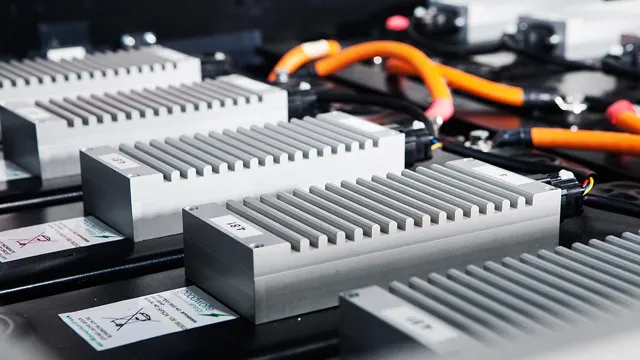
Longer Range
Solid-state technology is rapidly advancing, and one of the most exciting developments in this field is the potential for longer-range capabilities. Traditional battery-powered devices, such as smartphones and electric cars, have a limited range due to the constraints of battery technology. However, solid-state batteries have the potential to revolutionize the industry by providing a longer range for electric vehicles and other devices.
Solid-state batteries use a solid electrolyte instead of a liquid one, allowing for thinner, lighter, and more efficient batteries. These batteries have the potential to offer a range of up to 800 kilometers on a single charge, which is a significant improvement from the current range of roughly 400 kilometers. As solid-state technology continues to mature, we can expect to see more products with longer range capabilities and a greater focus on energy efficiency.
Advantages Over Traditional Batteries
Solid state electric car battery technology has numerous advantages over traditional batteries. Solid state batteries, unlike regular lithium-ion batteries, use a solid electrolyte instead of a liquid electrolyte. This eliminates the risk of leakage, which makes them much safer and more reliable.
Additionally, solid state batteries have higher energy density, meaning they can store more energy in the same space, making them more efficient and longer-lasting. They also charge faster and can tolerate wider temperature ranges without getting damaged. With these benefits, solid state electric car batteries have the potential to revolutionize the electric vehicle industry and help us move towards a more sustainable future.
Faster Charging
Faster charging is one of the biggest advantages of modern batteries compared to their traditional counterparts. With technological advancements, today’s batteries can recharge much faster than older models. This means less time spent waiting for your devices to charge and more time using them.
Additionally, faster charging can help reduce downtime for electronic devices and minimize disruptions in your day-to-day life. Overall, fast charging batteries are a convenient and reliable solution for anyone looking to keep up with today’s fast-paced lifestyle. So why settle for slow, outdated batteries when you can switch to a more efficient and faster charging solution?
Lower Costs
Lower Costs One of the biggest advantages of using modern batteries like lithium-ion over traditional ones is the cost savings that come with them. Compared to lead-acid batteries, the initial investment in lithium-ion batteries may seem higher. However, when considering the longer lifespan and reduced maintenance required, lithium-ion batteries can save money in the long term.
Additionally, lithium-ion batteries are more efficient and require less energy to charge, leading to lower electricity costs. This makes them ideal for use in renewable energy systems like solar panels, as they can store and release energy more efficiently. Overall, the lower costs associated with lithium-ion batteries make them the more cost-effective choice over traditional batteries.
Improved Safety
One of the key advantages of cutting-edge batteries over traditional ones is their heightened safety features. While conventional batteries are known to be susceptible to overheating and exploding, modern batteries are designed with built-in safety mechanisms to minimize the risk of such occurrences. For example, most modern batteries are equipped with specialized circuitry that regulates temperature and prevents overcharging, which are common causes of battery fires and explosions.
Additionally, these batteries are often made with non-flammable materials, further reducing the risk of combustion. With improved safety features, these batteries not only protect against accidents but also make it possible to use and store them in a wider range of environments, including those where traditional batteries might pose a fire hazard. Ultimately, these safety advancements represent just one of the many reasons why modern batteries are rapidly becoming the preferred choice for a wide range of applications.
Future Applications
Solid state electric car battery technology has the potential to revolutionize the way we power our vehicles. With a high energy density, faster charging times, and longer lifespan, these batteries could significantly improve the range and efficiency of electric cars. They are also safer and more environmentally friendly, as they do not contain the toxic chemicals found in traditional lithium-ion batteries.
This innovation opens up a world of possibilities for the future of transportation, including electric planes and ships, and even self-sustaining electric homes. As solid state battery technology continues to advance, electric cars could become more accessible and affordable for the average consumer, leading to a cleaner, more sustainable future. However, there are still some challenges to overcome, such as the high cost of production and the need for more efficient manufacturing processes.
Nonetheless, the potential benefits of solid state electric car batteries are too great to ignore, and we can expect to see some exciting developments in this field in the near future.
Electric Aviation
Electric aviation is fast becoming a reality, and its future applications are incredibly promising. With the aviation industry working hard to reduce carbon emissions, electric aircraft are providing a sustainable solution to air travel. Not only do they produce zero emissions, but they also offer a quieter and smoother flying experience.
This means that electric aviation can be used in a wide range of applications, including personal transportation, commercial flights, and even air taxis. Imagine being able to fly silently over a crowded city, avoiding traffic and reducing your carbon footprint at the same time. Electric aviation is set to revolutionize the way we travel, and its applications are diverse, with potential uses in everything from agriculture to emergency services.
As battery technology continues to advance, we can expect to see electric aviation become more prevalent and accessible, opening up a whole new world of possibilities for air travel. The future of aviation is electric, and it’s an exciting time to be a part of this emerging industry.
Smart Grid Integration
Smart grid integration is the future of energy management, with a multitude of new applications emerging to make the grid more efficient and sustainable. One of these applications is demand response, which allows customers to adjust their energy usage based on grid conditions and pricing. Another is energy storage, which uses batteries and other technologies to store excess renewable energy for later use.
Other potential applications include electric vehicle charging infrastructure and microgrids, which allow for greater control and reliability in localized areas. As more renewable energy sources are added to the grid, smart grid integration will become increasingly vital to ensuring a stable and reliable energy supply. With the right infrastructure and technology in place, smart grid integration can help create a better, more sustainable future for us all.
Conclusion
In conclusion, solid state electric car batteries are like the superheroes of battery technology. They are lighter, faster, more efficient, and have longer endurance than traditional batteries. One might say they are electric cars’ secret weapon against the evils of range anxiety and battery life limitations.
With the recent advancements in solid state battery research and development, it’s only a matter of time before we see them powering our cars, motorcycles, and even airplanes. So buckle up and get ready, because the future of transportation is about to get a whole lot more electrifying!”
FAQs
What is solid state battery technology for electric cars?
Solid state battery technology for electric cars refers to using a solid electrolyte instead of a liquid one, which can provide several benefits like higher energy density, faster charging times, and longer lifespan.
How does solid state battery technology improve electric cars?
Solid state battery technology improves electric cars by providing better energy density, faster charging times, and longer lifespan compared to traditional liquid electrolyte batteries. It also reduces the risk of fire and eliminates the need for cooling systems.
When will solid state battery technology be available for electric cars?
Solid state battery technology is still in the development stage, and it may take several years before it becomes widely available for use in electric cars. However, some companies like Toyota and BMW have already announced plans to launch solid state battery-powered electric vehicles by the early 2020s.
What are some challenges associated with solid state battery technology for electric cars?
Some of the challenges associated with solid state battery technology for electric cars include high production costs, limited manufacturing capabilities, and the need for new materials. Additionally, the high ramp-up time for mass production can be a significant challenge to overcome.
